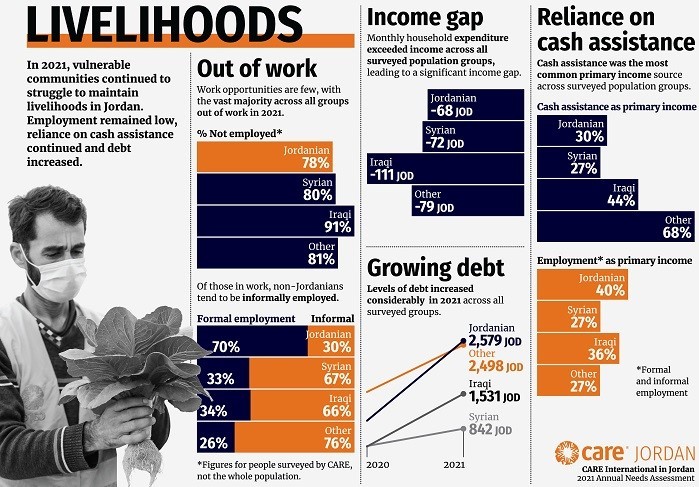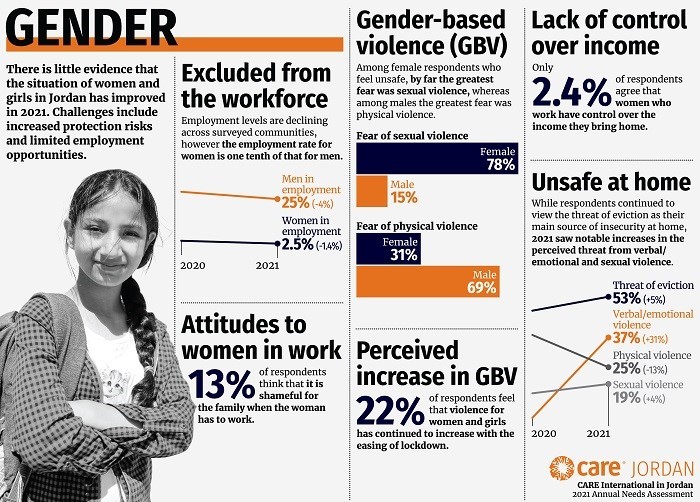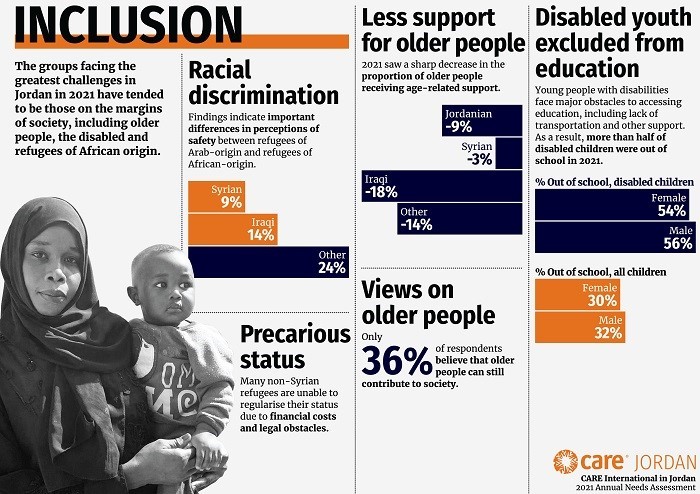AMMAN — Debt, unemployment, and the fear of
homelessness are exacerbating domestic violence and tensions within and among
refugee families living in Jordan and their Jordanian host communities, a new
study by CARE International in Jordan has revealed.
اضافة اعلان
CARE Jordan’s
study, 2021 Annual Needs Assessment, indicates severe distress among thousands
of refugees and vulnerable Jordanian families interviewed across the country,
the organization said in a press statement. Compared to last year, the number
of respondents facing verbal and emotional violence at home has risen by more
than 30 percent, with reports of gender-based violence having also increased.
Speaking at the
virtual launch on Wednesday in Amman, CARE Country Director in Jordan Ammar Abu
Zayyad said that “economic stress and the impact of the pandemic are driving an
increase in violence against women and children.”

The virtual event
was held under the patronage of Australian Ambassador to Jordan Bernard Lynch.
The unease among
families is also heightened by a constant threat of homelessness, the statement
added. More than half of the households surveyed said fear of eviction had left
them feeling unsafe at home. For many Syrian families living outside the camps,
rent constitutes over half their monthly income, leaving them with little for
food and other necessities.
“Without jobs or
savings to fall back on, families live in perpetual fear of having their
landlords turn them out or their water or electricity being cut off,” said
Julia Maria Angeli, head of gender and program Design at CARE Jordan.

Employment across
genders and nationalities declined in 2021 even with the reopening of the
Jordanian economy and high COVID-19 vaccination rates. Only 41 percent of those
interviewed had jobs, with Iraqi refugees bearing the brunt of unemployment.
Among Syrian refugees, less than a quarter (22 percent) had work permits — the
lowest rate recorded in two years, the statement said.
Although the
feeling of safety within the community remained constant from the previous
years, there are signs that community solidarity and cohesion are under
pressure despite the positive efforts of the Jordanian government and due in
part to the reduced funding for the Jordan Response Plan for the Syria Crisis.

The government’s
response to the COVID-19 pandemic allowed many Jordanians and refugees to
“retain a dignified life” despite the difficult conditions, Abu Zayyad said.
Despite this, renewed and long-term financial support from the international
community is “urgently needed” to ensure the wellbeing of the most vulnerable
communities in Jordan, he added.
Read more National news




